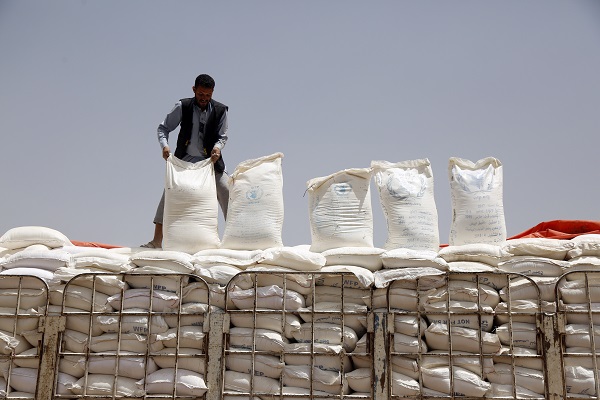Rome, (Asian independent) Ministers and high-level representatives from across Europe and Central Asia met on Wednesday at the FAO Regional Conference for Europe (ERC33) to discuss not only the implications of the war in Ukraine on global agrifood systems and world food security, but also ways of accelerating efforts to transform agrifood systems to assure inclusive and environment-friendly development and achieve better nutrition, both regionally and beyond.
“It is a key moment to discuss appropriate responses and to share proven solutions to support policy-makers across the region to address these challenges,” FAO Director General Qu Dongyu said in his opening remarks at the 33rd session of the Regional Conference.
The Europe and Central Asia region includes 53 high- and middle-income countries that are home to more than 900 million people.
The Director General acknowledged that the region is in a “good position” as one of the world’s food baskets and a global leader in both the quantity and quality of agrifood production, even as hunger levels are rising from relatively low levels in the region.
The region “plays a key role in worldwide food security” and is an important “source of new ideas and inspiration for the whole world,” said Henryk Kowalczyk, Deputy Prime Minister and Minister of Agriculture and Rural Development of Poland in his opening remarks.
Participants elected Zbigniew Rau, Poland’s Minister of Foreign Affairs, as Chairperson of the Regional Conference.
The situation in Ukraine was a primary focus of FAO Members, with a session dedicated to the impacts of the war on agriculture, including global food and fertiliser prices, arising from the hampered access to certain commodities and inputs.
“Peace is fundamental to protecting people from hunger,” Qu said, noting that FAO has been closely monitoring the implications of the war and pledged to continue to develop immediate, medium and long-term analysis and policy recommendations to its members.
“Ukraine is obviously the most affected by the war due to human suffering and destroyed value and supply chains, while others impacted include low-income food-importing countries dependent on the Russian Federation and Ukraine for food, feed, fuel, and fertiliser supplies, as well as all consumers everywhere who are grappling with food prices having reached record highs,” he added.
He urged FAO Members to seize the Regional Conference as an opportunity to discuss “potential approaches to prevent an even greater crisis in the future.”
FAO’s Ukraine team are on the ground with a rapid response plan for Ukraine where one in five households are estimated to lack the resources to meet basic food needs, and to help small farmers.
“Funds to support FAO’s $115 million plan to reach almost one million individuals in the country have not yet been received,” Qu said.
FAO Regional Conferences are held once every two years and serve as an opportunity to debate challenges and promote regional coherence in pursuing members’goals.
More than 300 delegates were registered to participate in this year’s session, representing almost all countries of Europe and Central Asia, making it the most attended regional conference here.
Emphasising the importance of political commitment to action plans, FAO Director General asserted that the organisation is committed to support the key priorities set by members in the region: empowering small holders, family farms and youth; transforming agrifood systems; and managing natural resources sustainably and preserving biodiversity, including the response to the war and the COVID-19 crisis.
Those goals are embedded in FAO’s Strategic Framework 2022-31 and articulated around the aspirations of the Four Betters: better production, better nutrition, a better environment, and a better life for all leaving no one behind.
A key objective is to move beyond a focus on food and production to an agrifood systems approach that encompasses nutrition, health, social and environmental values.








